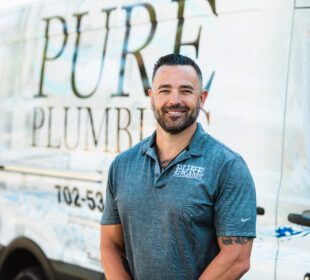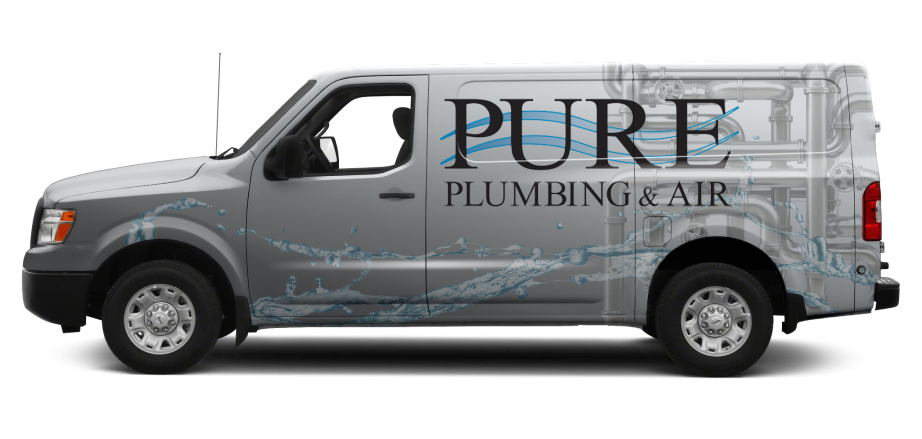The Las Vegas plumbing contractors for Pure Plumbing & Air, a 5-star plumbing company, state that plumbing leaks can quickly add up to major damage in your home if they are not caught right away. Fortunately, most leaky fixtures and pipes are preventable with regular home maintenance and inspections. From dripping faucets to aging water heaters, here is what you need to know about protecting your Las Vegas home from leaks.
- Know Where Your Main Water Shut-Off Valve is Located: Most homes have a shut-off valve located near the water meter outside. There is sometimes a second valve placed between the meter and the house, usually near an exterior wall. Make sure everyone knows where the valves are located, and be careful turning them since many are old and may break under high pressure.
- Find Out How to Cut Water Off to All Fixtures and Appliances: When a sink or dishwasher springs a leak, timing is critical. Knowing how to quickly turn off the water in these areas can prevent serious damage to your home, especially if your faulty fixture or appliance is on the second or third floor.
- Learn How to Read Your Water Bill: One of the first signs of a leak that our customers notice is a skyrocketing water bill. Your water bill should show your current water usage along with the previous months for comparison. If you notice a stark difference with no real explanation, then you should suspect a leak.
- Inspect Your Air Conditioning Condensation Lines: When your air conditioner is running, it creates condensation. Normally, this will run through the condensation lines and away from your home. If these lines are clogged, however, the condensation can build up and lead to water damage and mold.
- Keep a Pan Under Your Water Heater: The average lifespan of a water heater is about 12 years. At some point, you may find that it has sprung a leak. Keeping a pan beneath it is a quick preventative fix that can save you money down the road.
- Prevent Frozen Pipes: Exterior pipes without constantly running water can freeze during cold weather. Leaving a slight drip going while you are away can help prevent freezing, but insulating the entire space is more effective.
- Clean Beneath Your Sink: Underneath the kitchen sink is a favorite storage place for homeowners, but all of those household cleaners and clutter can make it hard to see a leak. Clean this area monthly, and do a quick inspection for signs of water damage.
- Check Your Radiator Leveling: A radiator should always be slightly tilted back toward the direction of the steam so that water condensation can drain back into the boiler.
- Replace Gaskets: Dripping shower spouts are often due to a faulty gasket. Trying this first often results in an instant fix.
- Follow Leaks to the Wall: A trap leak sometimes occurs on the backside of the wall. This usually requires disassembling the drain work to reach it.
- Try a Washer Before Buying a New Fixture: If a fixture is leaking, all is not always lost. Often, you can just replace the o-ring and save money.
- Faucets Eventually Need Replacement: Homeowners often get attached to their faucets and prefer not to replace them. However, they are mechanical devices that eventually corrode and break. While much can be done to repair one, all will eventually require replacement.
- Move Back a Spigot Valve: In certain homes, especially those with a cement foundation, installing a frost-free hose bib can allow the water to be shut off closer to the house and prevent freezing.
- Your Lawn Can Show Leaks: Underground leaks can be very hard to detect. If you notice soggy areas or discolored grass, then there may be water leaking into this area.
- Many Problems are Easy to Spot: You don’t have to wait for a major problem to have repairs done. A quick inspection of your pipes and the surrounding area can reveal mold, cracks, and drips that are visible to even inexperienced homeowners. If you spot anything, or you just want to have a preventative inspection completed, give Pure Plumbing & Air a call today so we can help safeguard your home’s value.

